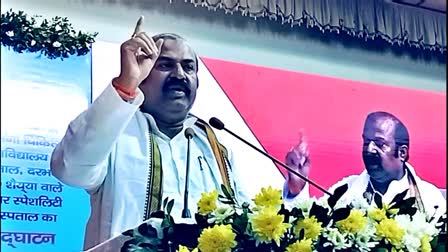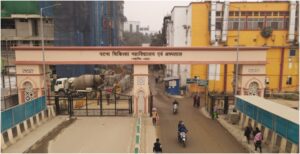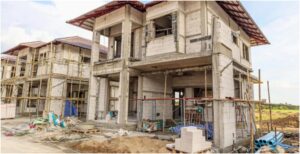Minister Criticises Referral Practices in Bihar Hospitals During Inauguration Event

Darbhanga: In a stark public critique of Bihar’s healthcare system, Social Welfare Minister Madan Sahni took aim at the referral practices in the state, calling for reforms during the inauguration of the Super Specialty Hospital at Darbhanga Medical College and Hospital (DMCH) on Saturday. Union Health Minister JP Nadda and a host of high-ranking officials, including Bihar Health Minister Mangal Pandey, were present at the event.
Sahni’s comments came as a surprise, disrupting the otherwise celebratory tone of the occasion. While Pandey extolled the facility as a transformative project that would turn Darbhanga into a medical hub for surrounding districts like Madhubani and Muzaffarpur, Sahni pointed to critical issues within the state’s healthcare system.
In an unusually candid address, Sahni claimed that patients from Darbhanga were being unnecessarily referred to Patna for treatment. “There should be a clear policy on referrals,” he said, adding that many of these cases could easily be handled at local facilities. According to Sahni, the frequent referrals were indicative of a broader mistrust in regional hospitals, including PMCH (Patna Medical College and Hospital).
“The fact that patients are being sent directly to IGIMS (Indira Gandhi Institute of Medical Sciences) in Patna instead of PMCH implies there is no faith in PMCH,” Sahni remarked, raising a direct challenge to the state’s health administrators. He further suggested that despite the significant resources being directed to Bihar’s healthcare system from Patna, many of these improvements fail to reach hospitals in districts like Darbhanga.
Sahni’s critique, made in the presence of Union Health Minister JP Nadda and Bihar’s Deputy Chief Minister Samrat Chaudhary, underscored the ongoing struggles in the state’s health infrastructure. Just a day earlier, Chief Minister Nitish Kumar had praised the advances made in Bihar’s healthcare, stating that the state now enjoys far better medical services than in previous decades. However, Sahni’s remarks painted a less rosy picture.
His call to expedite the launch of indoor treatment services at the new Super Specialty Hospital in DMCH was met with silence from other officials on the dais, reflecting the unease that his comments caused. Despite the substantial investment of ₹1,500 crore from the central government to upgrade health services in Bihar, Sahni questioned the real impact of these funds on the ground.
Mangal Pandey’s vision of Darbhanga as a future medical hub was overshadowed by Sahni’s assertions that systemic issues remain unresolved. The tension between the two ministers highlighted the persistent challenges in Bihar’s healthcare system, where resources are concentrated in urban centres like Patna while rural and smaller districts continue to face inadequacies.
Sahni’s public critique will likely intensify the debate over healthcare delivery in the state, as more attention is drawn to the disparity between the infrastructure available in different regions. His bold statements also place added pressure on the state government to address the deep-rooted issues in its healthcare system.
For now, the opening of the Super Specialty Hospital in Darbhanga is a step forward, but as Sahni made clear, without addressing fundamental problems like patient referral practices, Bihar’s healthcare system may continue to face significant challenges.






